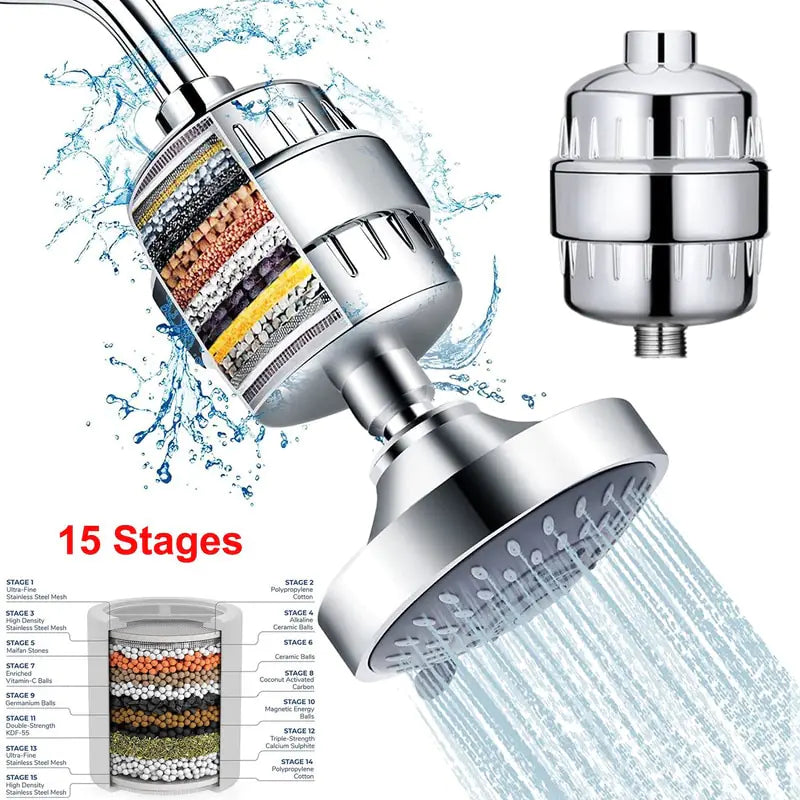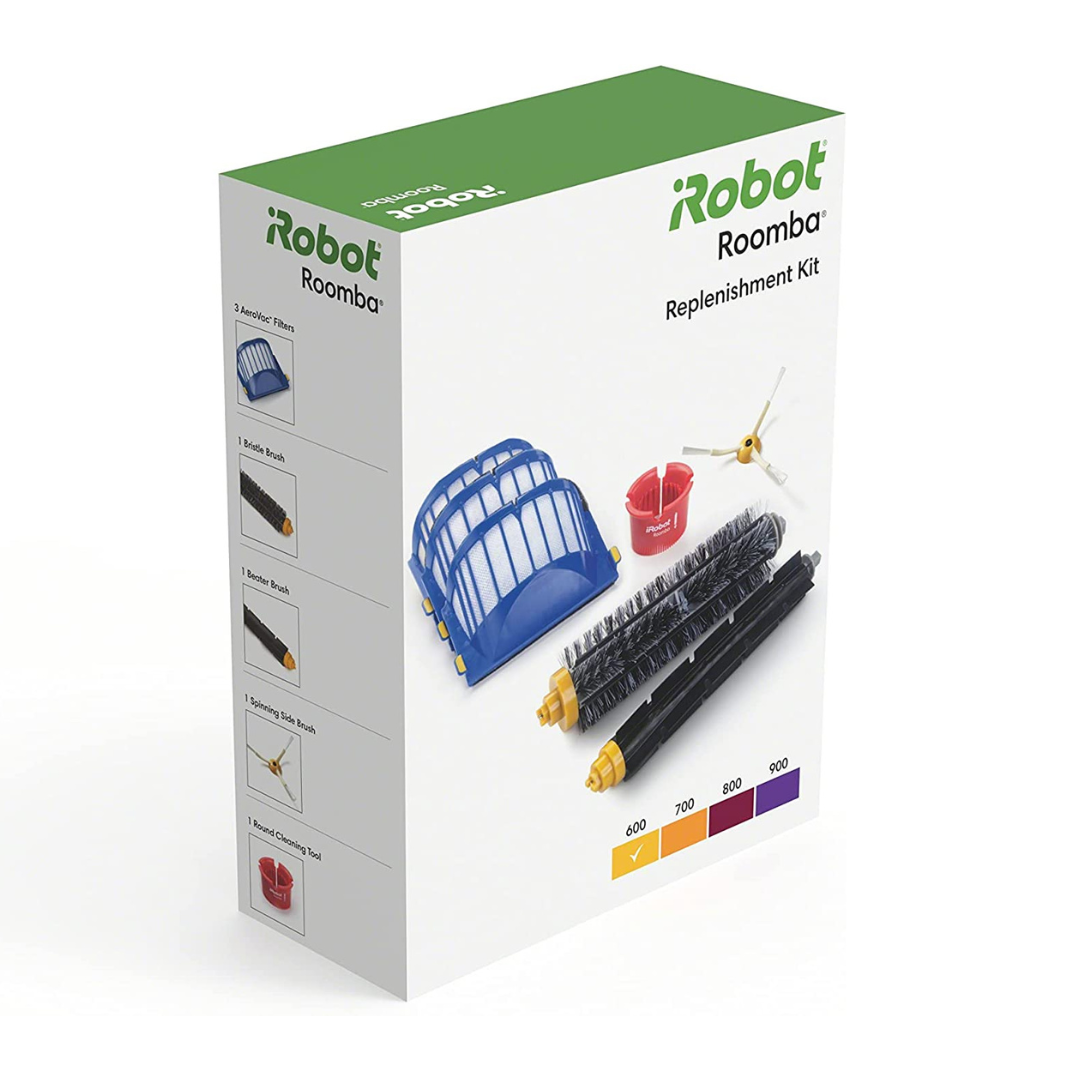What Happens If You Don’t Change Your Frigidaire Refrigerator Filter Every 6 Months?
 When it comes to keeping your family safe and healthy, clean drinking water is non-negotiable. If you own a Frigidaire refrigerator with a built-in water and ice dispenser, chances are you're already benefiting from a high-quality water filtration system. But here’s the catch: those filters don’t last forever.
When it comes to keeping your family safe and healthy, clean drinking water is non-negotiable. If you own a Frigidaire refrigerator with a built-in water and ice dispenser, chances are you're already benefiting from a high-quality water filtration system. But here’s the catch: those filters don’t last forever.
Frigidaire, like most leading appliance manufacturers, recommends changing your refrigerator water filter every 6 months. But what happens if you ignore that little reminder light? Is it really that bad to stretch the lifespan a little further?
In this post, we’ll break down everything you need to know about why that 6-month mark matters, and what risks you’re taking when you don’t replace your filter on time.
What Frigidaire Refrigerator Filters Actually Do
Before we dive into what can go wrong, let’s quickly understand what these filters are designed to do.
Frigidaire refrigerator water filters, such as the popular ULTRAWF, WF3CB, and EPTWFU01, use activated carbon block technology to trap and absorb a variety of contaminants. These filters are tested and certified (typically by NSF/ANSI) to reduce:
- Chlorine taste and odor
- Lead
- Cysts (like cryptosporidium and giardia)
- Mercury
- Volatile Organic Compounds (VOCs)
- Sediment and rust
- Pharmaceuticals (in some models)
Their job is to ensure that every drop of water from your fridge is clean, clear, and safe to drink.
What Happens If You Don’t Replace the Filter?
 Once that 6-month period has passed, your filter doesn’t just stop working it gradually becomes less effective, which can lead to some serious issues:
Once that 6-month period has passed, your filter doesn’t just stop working it gradually becomes less effective, which can lead to some serious issues:
1. Water Quality Drops
Over time, the carbon in the filter gets saturated. It can no longer absorb impurities effectively. That means:
- Water starts tasting or smelling off (chlorine taste returns)
- Sediments may reappear
- Contaminants like lead or mercury may no longer be filtered
2. Bacteria and Mold Can Grow
An old, wet filter sitting in your refrigerator is a breeding ground for bacteria. Once the carbon is maxed out, the filter can become biologically active and harmful microorganisms could multiply inside it.
If you or your family members start noticing stomach issues, this could be a silent culprit.
3. Reduced Water Flow
Clogged filters slow everything down. You’ll notice:
- Water coming out slower from the dispenser
- Ice maker filling more slowly
- Reduced pressure, especially if your home has hard water
4. Ice Quality Degrades
Not only does water quality suffer, your ice cubes might start:
- Smelling funny
- Looking cloudy
- Melting faster due to impurities
And that’s just unpleasant, especially when entertaining guests.
5. Risk to Refrigerator Performance
Overused filters can cause backpressure, potentially damaging your fridge’s internal systems. In rare cases, it can lead to leaks or even pump failure.
Skipping filter replacements is like running a car without changing the oil. Sooner or later, things break.
6. Voided Warranty
If your refrigerator is still under warranty, failure to replace the filter as recommended could void your coverage. Manufacturers assume you’re following proper maintenance — and filter changes are part of that.
The Science Behind the 6-Month Timeline
You might wonder: “Why 6 months specifically?”
Here’s why:
- The average U.S. household uses 300 gallons of filtered water in 6 months
- Carbon’s adsorption capacity is limited — once full, it can’t trap more particles
- Water quality and flow rate decline noticeably after this window
- In warm climates or humid kitchens, bacterial risk increases faster
It’s not an arbitrary number, it’s based on actual usage, lab testing, and manufacturer research.
If your household uses more water than average (large families, athletes, hot weather, etc.), your filter may even need replacement every 4 months.
Signs You Need to Replace Your Filter (Even Before 6 Months)
Sometimes you can’t just rely on the calendar. Watch out for these red flags:
🧊 Ice smells or tastes bad
💧 Water has a chlorine-like taste again
🚿 Water dispenser slows down
⚠️ Your fridge’s filter indicator light comes on
🧫 You see floating particles in your glass
🫢 Your pets stop drinking fridge water (yes, they know!)
Trust your senses they’re often more accurate than the filter timer.
Why Some Users Delay Filter Changes
Let’s be real. People delay changing their filters for a few common reasons:
“It’s Too Expensive”
A good Frigidaire filter costs around $30–$50. Some compatible options are even cheaper. But compare that to:
- The cost of a plumber visit
- The cost of water-related illness
- Damage to a $2,000 refrigerator
It’s not an expense it’s preventive maintenance.
“I Forgot”
It happens. That’s why we recommend:
- Setting phone or email reminders
- Writing it on your calendar or fridge
- Signing up for a filter subscription program (many stores offer this)
“My Water Still Looks Fine”
Sure, until it doesn’t. Remember, many contaminants are invisible and odorless (like lead or mercury). Just because water looks clear doesn’t mean it’s safe.
Cost of Not Replacing vs Replacing
|
Action |
Approximate Cost |
|
Frigidaire water filter replacement |
$30–$50 (every 6 months) |
|
Repair for fridge damage (e.g., valves/pumps) |
$200–$600+ |
|
ER visit for waterborne illness |
$500+ |
|
Long-term exposure to contaminants |
Priceless (health risk) |
When you look at the numbers, changing the filter is the cheapest insurance policy for your fridge and your health.
How to Make Filter Replacements Easier
Here are 3 simple tips to make life easier:
1. Use Auto-Ship Services
Many online stores (including ours) offer filter subscriptions with 5–10% discounts. You’ll never forget, and you’ll save money.
2. Buy in Multipacks
Frigidaire filters often come in 2- or 3-packs. Buying in bulk reduces cost per unit and ensures you always have a spare.
3. Keep a Replacement Reminder Chart
Stick a label inside your cabinet:
- “Last replaced: March 2025”
- “Next due: September 2025”
Simple, effective, and visible.
Final Thoughts: A Small Filter, A Big Impact
Neglecting to change your Frigidaire refrigerator filter may seem harmless in the short term but over time, it can quietly compromise your water quality, damage your appliance, and even pose health risks to your family.
Let’s recap what’s at stake:
- Water quality deteriorates — chlorine taste returns, contaminants seep through
- Bacteria and mold build up — old filters become breeding grounds
- Appliance efficiency drops — slow water flow, faulty ice makers, and costly repairs
- Your family's health is at risk — especially if you’re dealing with heavy metals or cysts
- Warranties may be voided — if you don’t follow basic maintenance timelines
Replacing your filter every 6 months isn’t just a “recommendation” — it’s an essential maintenance task that protects your investment and your loved ones.
✔️ For less than $10 a month, you get clean water, peace of mind, and a fully functioning refrigerator.
Don’t let a $40 filter become a $400 repair.
Whether you need a genuine Frigidaire ULTRAWF or a compatible WF3CB, we’ve got you covered.
👉 Shop Frigidaire Water Filters Now — and make sure your next glass of water is one you can truly trust.











